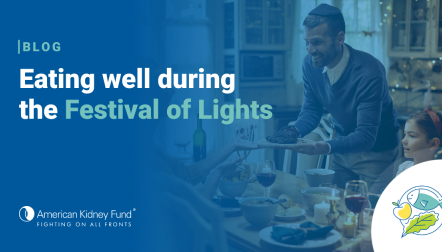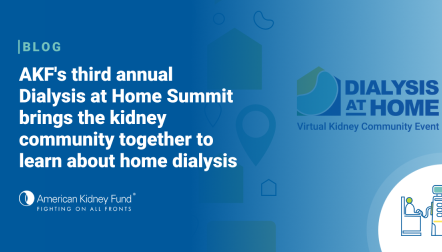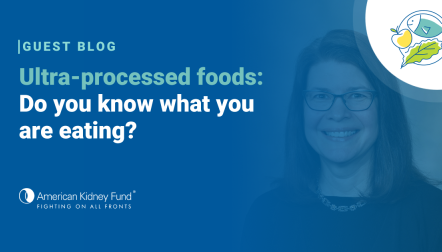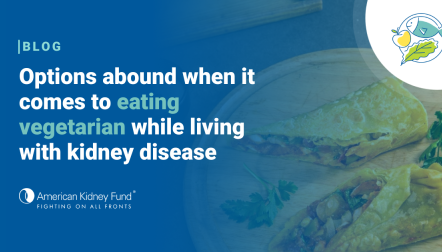
Blog post
Kidney-friendly tips for storing your Thanksgiving leftovers

Thanksgiving is a wonderful opportunity for you to gather with family and friends to give thanks – and indulge in delicious food. The fall favorites recipe collection on the American Kidney Fund's (AKF) Kidney Kitchen® is a great way to ensure your Thanksgiving meal is kidney-friendly for you and your loved ones with kidney disease. But considerations for keeping your kidneys safe extends beyond the meal itself. Once you are as stuffed as the turkey, how do you store your leftovers to ensure they are safe to enjoy later?
Properly storing your leftovers is important to avoid foodborne illness for everyone, but it is especially important if you are living with kidney disease. If you have kidney disease, your kidneys do not work as well as they should, and you may have a weakened immune system as a result. This is especially true if you are living with a kidney transplant because the immunosuppressant, or antirejection, medicines you take actively work to suppress your immune system so your body does not reject your new kidney, leaving you especially vulnerable to infections. A weakened immune system makes it harder for your body to fight off infections, which can lead to more serious, and sometimes deadly, effects of foodborne illness. It is important to learn and practice safe food handling and storage, so you can lower your risk of getting sick.
Here are some kidney-friendly tips from one of AKF's Kidney Kitchen collaborators, USDA's Food Safety and Inspection Service (FSIS), to help you safely enjoy leftovers of your holiday favorites:
1. Store your leftovers within two hours of cooking
You may want to lounge in the post-Thanksgiving feast food coma, but do not let that prevent you from putting away the food you have prepared in a timely manner. Within two hours of cooking food, or after the food is removed from an appliance keeping it warm, leftovers must be refrigerated. Bacteria grow rapidly between the temperatures of 40° and 140° F, what the USDA calls "the danger zone." Chances are you keep your house at a comfortable temperature within that range. If you leave your food out too long at room temperature, it will be more likely to make you sick.
2. Carve the turkey into smaller portions before storing it
Cooking a whole turkey takes a while, and the process to cool it down takes a long time as well. To avoid that danger zone, cut the turkey into smaller portions so it will cool more quickly and safely. Legs and wings can be kept whole, but breast meat should be sliced. It is not safe to refrigerate a whole cooked turkey. This does not just apply to the turkey — divide all leftovers into smaller portions and refrigerate or freeze them in covered, shallow containers to help them cool more quickly.
3. Have your leftover feast within four days
Leftover food is safe in the refrigerator for up to four days. That means you have until the Monday after Thanksgiving to eat them. Alternatively, you can place your leftovers in the freezer to enjoy later. While frozen food stays safe indefinitely, the quality of the food decreases over time. Typically, leftovers stored in the freezer will be good for up to two to six months. Whenever you decide to enjoy your leftovers, be sure to thoroughly reheat them to an internal temperature of 165 °F.
Find more food safety tips specifically for those living with kidney disease on Kidney Kitchen and find more leftover and food safety tips on the USDA FSIS's website. If you have additional Thanksgiving food safety questions, you can also call the USDA Meat and Poultry Hotline at 1-888-MPHotline (1-888-674-6854), email MPHotline@usda.gov or chat live at ask.usda.gov from 10 a.m. to 6 p.m. ET, Monday through Friday. The Hotline will also be open Thanksgiving Day from 8am-2pm ET.
We hope you enjoy a safe and happy Thanksgiving meal – the first and second time around!





